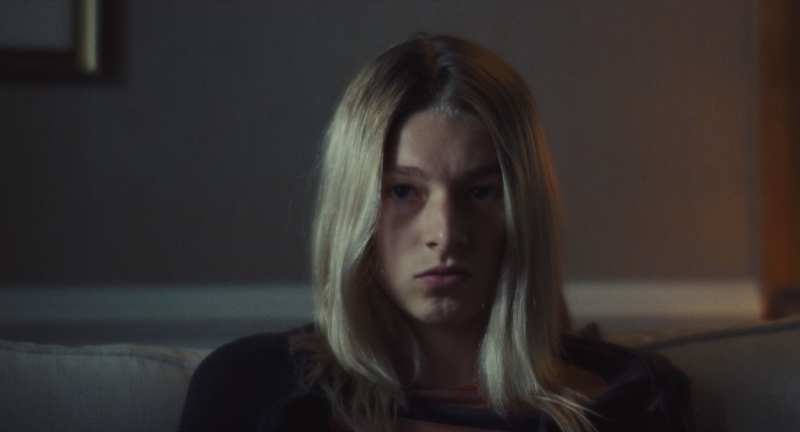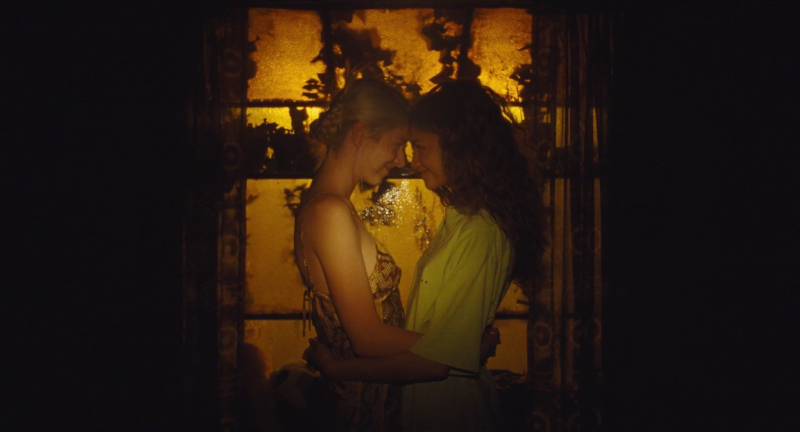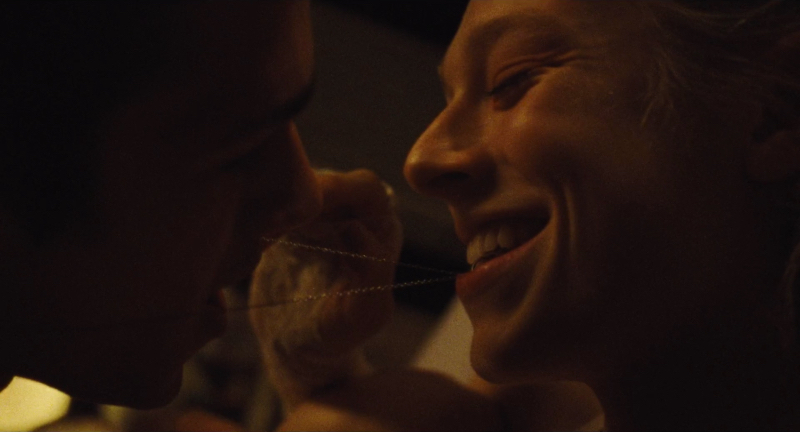When I was in high school, I loved therapy. I always knew what to say to make that man laugh or smile or seem just the right amount of concerned. I knew how to feign vulnerability and growth so he’d call me self-aware and praise my progress. I treated myself as a sort of test subject — my life as a tool — an easy continuation of the disconnect I felt every day. The game was to convince them I was okay — convince myself that I was okay. I always won.
A few years later I started again, but my new therapist saw through my bullshit. And then it became less fun. Sometimes I left therapy feeling worse than when I’d arrived. I wasn’t sure if I was getting better. I wasn’t sure of anything. But it was good. It was better. Some sessions brought actual vulnerability and with it actual revelations. I became someone less controlled by my OCD, I became someone capable of being in a long term relationship, I became someone who came out of the closet.
Therapy has been essential to my survival and I am still in therapy and yet it has also been difficult and damaging and a total waste of my time. I feel the same way about on-screen representation.

This weekend brought the second special episode of Euphoria: “Fuck Anyone Who’s Not a Sea Blob.” Written by show creator Sam Levinson and star Hunter Schafer, this episode attempts to tell Jules’ side of the story — not just in the weeks since the finale but for the entire show. As I’ve written about — and then written about again — my relationship to Euphoria is fraught. I love the show, because of its cast, its creative spirit, and its representation. And I hate the show because of its limited writing, exhausting self-importance, and, well, its representation.
Like therapy, it’s easy to frame representation as either bad or good. We need to destigmatize therapy and make sure its accessible to all is a simple enough point. We need to increase the stories told about marginalized communities and diversify who we see on screen is simple as well. But the actual experience of those things — the experience of sitting in a room while someone unravels your life, the experience of sitting in front of your TV and seeing glimpses of that life — these are not simple things. So much depends on the quality of your therapist/the show. So much depends on what you bring to the space and what you can handle. At their best, these experiences are challenging. At their worst, they’ll fuck you up.
Watching this new episode of Euphoria, I finally understood why so many trans women avoid trans-specific media and choose projection instead. I understood why it might be easier to live in cis fantasy than our own realities. Because how often are they truly our own? And how often are they simply a different kind of cis fantasy with us as the supposed subject? Even when we’re involved in front of the camera, or even behind, our voices are still filtered through more powerful cis collaborators or cis financiers and studio execs or simply the cis world we live in. I do think trans creators have made a lot of remarkable art, but the search is painful, because of how often it fails to connect — and because of the feeling when it does.
The majority of this Euphoria episode takes place in a therapist’s office. Jules is back after running away and now she’s reluctantly talking to a therapist played by Lauren Weedman (who I adore because of Looking). The therapist asks Jules why she ran away and we cut to a close up on Jules’ eye. We watch a montage of memories set to Lorde’s “Liability” and in this moment I knew I was fucked. That song came out two months before I did and the short story I wrote to process my newfound revelation culminated with the me character singing that song at a karaoke bar to the character based on my girlfriend at the time. This isn’t as much a coincidence as it is very easy to project a trans narrative onto this song about a girl worried she’s “too much” for the people around her.
The episode is filled with lines and moments that sting with relatability. Everything from the specificity of that Lorde song to the suggestion from a therapist that you’re using self-criticism as a defense mechanism. Jules has long acted as the show’s object of desire — why do you think cis women are so obsessed with her? — and this first look into her POV reveals what can happen when a trans character is given agency. Jules talks about wanting to remove her puberty blocker to expand her notion of womanhood, she talks about the judgements of cis girls, she talks about defining her femininity through the approval of men. All I’ve wanted since Euphoria began was for Sam Levinson to write with people who actually have the characters’ perspectives — this episode shows why. Hunter’s lived experience is felt in each moment of nuance.

Despite the similar set up of a wise adult talking to a young protagonist, this episode does not have the same two-hander feel of the previous special. In lieu of theatricality, Levinson jumps in and out of the therapy session with frenetic montages of memory and fantasy. Some of these work better than others. After all, it’s still Euphoria.
Part of Jules’ problem is she’s stuck in these very fantasies. She talks about “Tyler,” her texting boyfriend we eventually learned to be the abusive Nate. She says that even though he isn’t real she’s still in love with Tyler. She says that the sexting they had was the best sex of her young life. Don’t worry, she’s also in love with Rue, but that relationship carries a weight of reality. Jules says maybe what she’s attracted to is the letdown — that it’s all a fantasy. Again, Hunter’s influence is felt here. It’s not that this is an exclusively trans concern, but it feels trans. Many of us feel disconnected from our bodies and therefore from reality resulting in the formation of meaningful connections online before we’re ready to confront the difficulty of in-person bonds.
But it’s not just Jules’ transness that has shaped her damage. We learn that while Rue was struggling with sobriety throughout the first season, Jules was struggling with the sobriety of her mother. Jules says the pure way Rue looks at her reminds her of a mother’s love. Then she talks about how she felt responsible for Rues’ sobriety and her mother’s. The therapist points out the obvious connection which Jules has inexplicably failed to realize. Sometimes therapy is like that. Sometimes television is like that. Sometimes adolescence is like that. Subtlety is overrated.
The final scene shows Rue and Jules finally reunited outside a fantasy. We learn that this episode has been taking place before the last one — Rue stopped by Jules’ house before going to the diner. They barely speak and Rue leaves crying. That’s what prompted Jules’ text with the Moses Sumney song. We end on Jules crying, seen artfully through a rainy window.

I don’t trust Sam Levinson. It’s not personal — I don’t know the guy — it’s just based on the many dangerously transphobic missteps in the first season. But I love this show and I welcome change. I’m so glad Hunter got to work on this episode and the results are clear. But distrust doesn’t fade so easily and there were still moments that made me cringe. Maybe if I was approaching them from a place of trust, they wouldn’t have. I want to offer that as a possibility. But the perspective of the montages with Jules taking naked selfies or Jules and fantasy Tyler fucking felt a little off. The point of the episode was to finally make Jules less of an object and Sam Levinson’s gaze is just so fucking objectifying. It felt like an odd contrast with the words Jules was saying about men and her sexuality — words clearly influenced by Hunter’s own personal life.
Representation is complicated. To be seen when you’ve so rarely been seen is as painful as it is powerful. And when that image feels both true and false it has an extra layer of pain. It’s why we’re often so hard on art from our own community. When we’re finally promised a glimpse at ourselves, it’s upsetting to see anything but a mirror. Euphoria is not a mirror for me. It’s more like the trick mirrors they use to achieve some of their most striking visual moments. But I don’t need a mirror — I just need a reflection of truth, not my own. And this episode felt close. I hope it keeps feeling closer.
I’m going to go to therapy tomorrow. I’m going to look at myself and try to be vulnerable and hope the trust I’m placing in my therapist isn’t misguided. And when Euphoria comes back for its second season I’ll be watching. The defense mechanisms, the avoidance, the fantasy is easy. The reality is hard. But the only way to get a better reality is to feel the pain. And ask for more.



Beautiful review! I watched Euphoria but haven’t seen either of the specials yet and am not sure yet I will. Regardless, this review was rich
When I look for Eurphia reviews, there’s none that get it quite like Drew ❤️ Once again, loved your perspective on this episode.
“Representation is complicated. To be seen when you’re so rarely seen is as painful as it is powerful. And when that image feels both true and false it has an extra layer of pain”
Wow, I felt this so much in my heart and head. You captured this this so beautifully. Thank you, Drew.
Thank you for this review, I’ve been looking forward to reading your perspective. I liked the episode for all the reasons you said, but then felt like those fantasy parts were off sometimes – I’m glad you were able to write a little about that.
I really relate to that concept of living through fantasies in one’s head, the safety of that, the control in that too, so I liked that this episode explored that. Especially as a woman, as a queer woman, as a trans person. And I tried to approach it in good faith: that those fantasy visuals were about how we often subject ourselves to an objectifying gaze, or whatever, especially in a mental search of desire & feeling desirable (which feels like a toxic parasitic tandem sometimes). Therefore, it’s ok that those sequences were in the episode, right, is what I was trying to tell myself. For example: at least this time around there was way more focus on Jules’ face, and a look of pleasure on that face – instead of disconnect or pain or tears, as was so often the case in Euphoria s1 for all the girls. Yet… as you said… I couldn’t shake off that idea of a gaze, and the fact that it still felt objectifying.
Maybe there’s something to it, or maybe that’s because of a cynical distrust that I’ve let media & society instill in me. Maybe that’s because of my own hangups, how my own fantasyland – especially when it comes to sex romance or desirability – often also turns dark and self hating and insecure, alongside those other fantasies. And how an absence of those murky shadows, it feels like it’s… glossing over something, to make that fantasy… more glossy. Like maybe the gaze of the director wanted to keep the fantasies looking like a fantasy, something attractive, rather than something that can turn ugly in a split second in the reality of uncontrollable brain chaos.
But then that’s where your comment comes in about representation and mirrors. “When we’re finally promised a glimpse at ourselves, it’s upsetting to see anything but a mirror. Euphoria is not a mirror for me. It’s more like the trick mirrors they use to achieve some of their most striking visual moments.” And I feel like that’s a really good way of putting it.
And I suppose it’s true that Euphoria doesn’t need to be a realistic mirror or completely without any type of gaze, for it to still have value. As representation, but also as art, for us to be able to talk about it and connect it to our own lives in all the ways we feel it’s good and bad and everything in between.
Anyway lol, that wasn’t my most coherent moment of contemplation, but I was typing and thoughts got away from me. I guess that’s because of your review and how it inspires critical and self-reflective thought. So thank you for that! And I guess thanks a little to Euphoria too :p
Certain aspects of this show (and pretty much all aspects of Hunter Schafer’s amazing acting and characterization) are so so so beautiful and revolutionary, but as you’ve written, some parts are just…not. Thank you for this thoughtful and critical review!